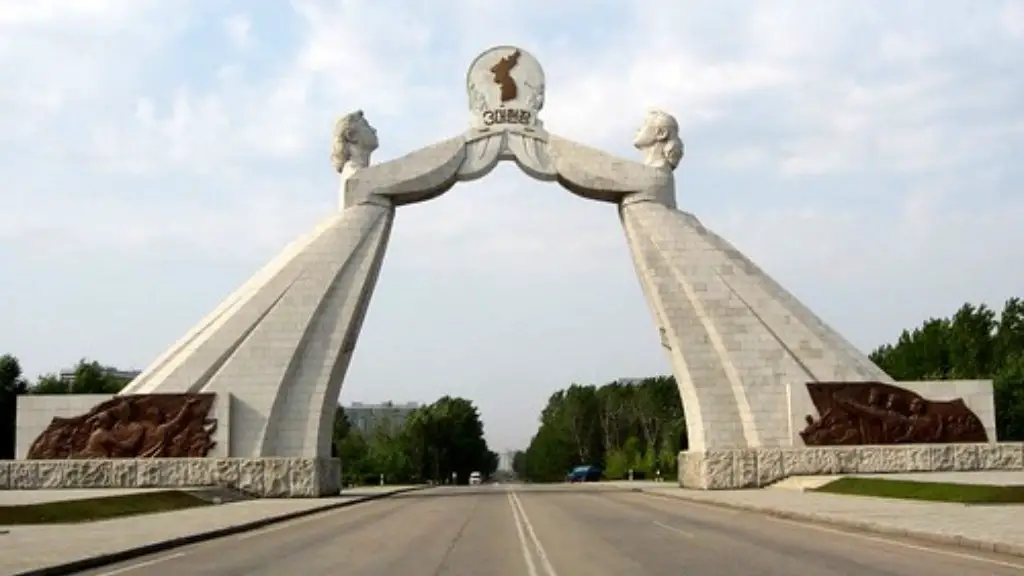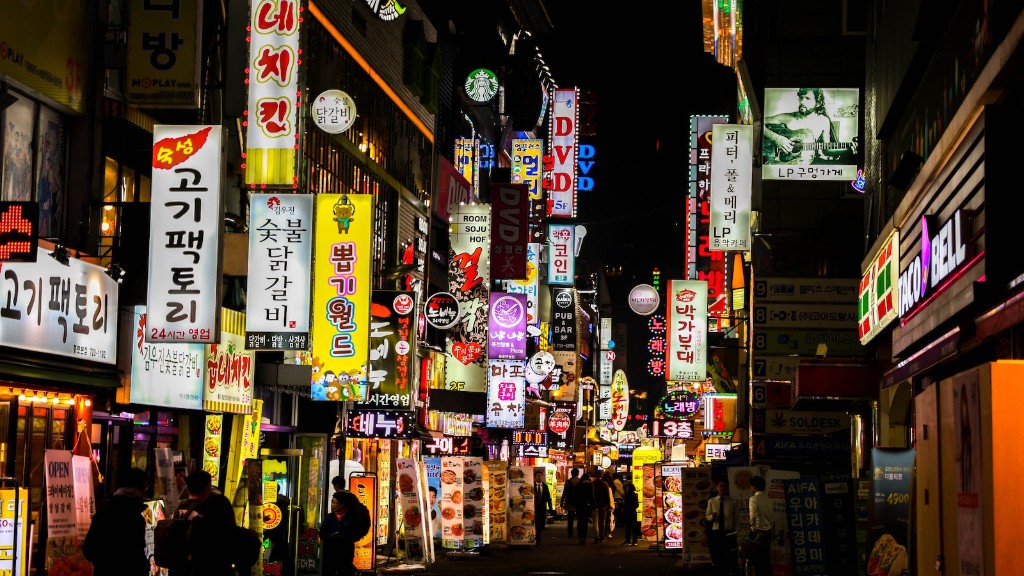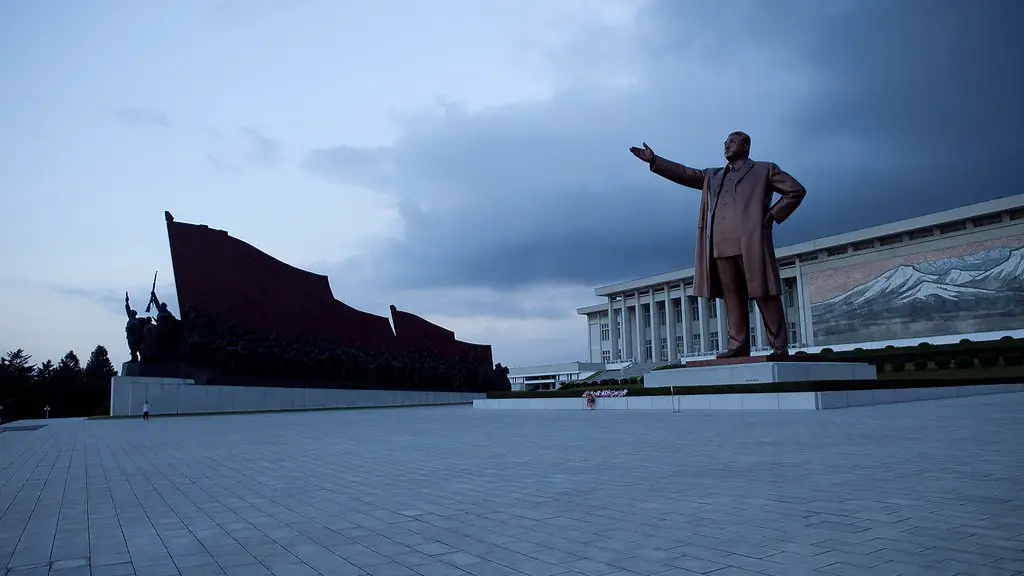South Korea and North Korea have spent the last few decades separated by a heavily militarized border, their populations increasingly diverging. Although they may seem similar to the outside world, South and North Korea are starkly different. Economic capabilities, political systems, and infrastructure are all vastly different between the two countries. It is difficult to imagine how two countries so close could be so distinct, yet this social and political divide has been in place for generations.
The most obvious difference between South and North Korea lies in their respective economic standings. In 2018, the GDP per capita of South Korea was estimated at roughly $31,500, while North Korea’s was a dismal $1700. South Korea’s economy is made up largely of the service (67.4%) and manufacturing (25.9%) sectors, while North Korea relies almost exclusively on the primary sector of agriculture (41.7%), and light industry (24%). South Korea’s economic miracle is largely credited to the “developmental state” system- strong support from the government and efficient use of resources.
It is no surprise that these economic differences are due, in part, to South Korea’s open markets and welcoming of foreign investments. North Korea, on the contrary, has only recently opened its doors to limited foreign investment and is still considered largely closed off to outside influence. As a result, the South Korean economy is vastly superior, thriving through its ties with international partners.
Political differences between North and South Korea manifest in their respective governments, too. North Korea is still largely run as a totalitarian dictatorship, with its citizens having little to no political representation and facing heavy surveillance from the government. South Korea, meanwhile, prides itself in its democratic government and parliamentary system with universal suffrage. Although their constitutions are similar, they are still far apart when it comes to freedom of expression, speech, and religion, with South Korea boasting a much more liberal approach.
The key distinction between the two countries lies in their respective stances on the world. South Korea is a member of many international organizations, and has a very active diplomatic corps that engage with countries worldwide. North Korea, however, is isolated and confrontational, largely keeping to themselves and antagonizing the international community. This stark contrast in international engagement contributes, to a great degree, to the disparity between their respective economies, and affects their abilities to control the flow of goods and services into the country.
Infrastructure differences between the two countries are glaringly obvious; motorways, cities, and the countryside in North Korea appear almost forgotten, a stark contrast to the thriving metropolises in South Korea. North Korean communities lack many of the amenities, such as electricity or running water, that are commonplace in South Korea. Access to adequate health care, education and technology are also vastly different; South Koreans are some of the most connected and educated people in the world, while North Koreans lag behind in almost all fields, especially higher education.
Environmental Differences
The consequences of decades of poor economic and political policies in North Korea are visible in the environment, while South Korea is far more advanced and mindful of its preservation and conservation efforts. Pollution levels remain much higher in North Korea, caused by a lack of environmental laws and a heavy reliance on coal. South Korea has taken great efforts to reduce its environmental footprint, as evident in its support for renewable energy and strict emissions standards.
Despite the Korean War officially ruling both South and North Korea as one nation, the two countries have grown exponentially different in the decades that have followed. South Korea has embraced globalisation and opened its borders, slowly growing its economy and protecting its citizens from political whistleblowers, while North Korea still seems to be a largely forgotten nation in its current state.
Difference in Technologies
South Korea has marched forward in terms of technology when compared to North Korea — with not just the superior GDP, but also the extraordinary push towards being on the cutting edge of technological advancements. South Korea leads the way in consumer technology and its population having access to the best available. South Koreans have smartphones, tablets, smart televisions and can browse the internet with an advanced infrastructure for broadband and mobile internet. North Koreans, on the other hand, do not have such luxury. Even a simple internet connection is something that North Koreans are deprived of.
Moreover, infrastructure in South Korea has advanced significantly in the past few decades while North Korea has remained relatively stagnant. South Korea is one of the leading nations in the world in terms of aviation, shipping, and other means of transportation. South Korea has built modern cities and towns with a perfect combination of modern buildings and greenspaces, while North Korea isn’t able to do the same.
The technological advancements and infrastructure development in South Korea serve to attract foreign investments, while the lack of such benefits North Korea. This further contributes to the gap between the two countries.
Human Rights
Another key difference between the two countries lies in the way citizens are treated. South Korea enshrines human rights in its constitution and is an outspoken advocate for its citizens’ freedoms. North Korea, on the other hand, disregards these rights and has regularly been accused of serious human rights violations. UN reports have exposed the fact that North Korea’s government represses its citizens to extreme levels, with a lack of freedom of speech, association and religion being a pressing issues.
The most visible example of North Korea’s human rights abuses is the prison system, which comprises both work camps and ‘re-education centres’. Human rights organisations have regularly exposed evidence of inhumane and torturous conditions in these camps, including reports of malnutrition, poor housing, slave labour and executions.
Conversely, South Korea places strong emphasis on the protection of its citizens, with a legal system in place that punishes all manners of human rights violations. South Korea’s courts are independent, and rapid trials and verdicts are commonplace. South Korea also has an extensive program of national human rights bodies, including an ombudsman and a Human Rights Commission.
Cultural Difference
The two countries have also developed different cultures following decades of isolation. In North Korea, the majority of culture is based on admiration for the leader, Kim Jong-Un and the Kim dynasty. This can be seen through the prints of the leader, which are placed in all official buildings, as well as songs, poetry and stories all praising the leadership. There is little to no allowance for outsider input or creativity, which limits the range of cultural expressions.
South Korea, on the other hand, is far more open to foreign influence. South Koreans have access to all types of media, ranging from movies to music, giving them a wide range of expression. South Korea also prides itself on its own cultural heritage, through institutions such as the National Theatre and the National Museum. As a result of the openness, South Korea has seen an explosion in its various cultural expressions, with many South Korean acts finding success on the international stage.
Education System
The education system in South Korea is arguably one of the most advanced in the world, thanks to its family oriented culture and thirst for knowledge. South Korea’s education system is marked by heavy emphasis on mathematics, science and language proficiency. They also have one of the highest rates of university attendance in the world, with over 70% of South Korean students attending higher education. This can be attributed to their strong emphasis on education from primary school level and the numerous initiatives introduced at an administrative level – such as tuition subsidies, low interest student loans, and introduction of additional scholarships.
In North Korea, education is also taken seriously, with emphasis being put on loyalty to the leader, state ideology and history. It is widely accepted that North Korea has high student enrollment and literacy rates, however, the quality of education is something that is highly questionable. North Korea’s educational infrastructure is outdated and ill-equipped, with few resources devoted to the sector. Moreover, their curriculum is outdated, investments in research and development are limited, and opportunities for teachers to update their knowledge are almost non-existent.




